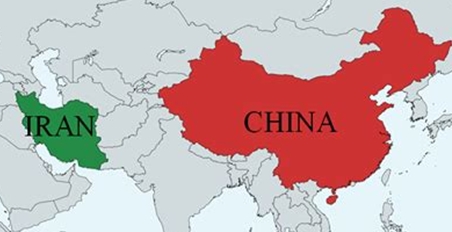
China and Iran are two of the countries that take extreme measures to “intimidate, harass and sometimes plot attacks against political opponents and activists who live in the U.S.,” reports the Associated Press (“As China and Iran hunt for dissidents in the US, the FBI is racing to counter the threat,” May 6, 2024).
In 2022, Yan Xiong, a former student leader of the 1989 protests in Tiananmen Square, ran for Congress. A Chinese spy sent to stop him tried to hire a private investigator “to hunt for any mistresses or tax problems that could upend the candidate’s bid, prosecutors say. ‘In the end,’ the operative ominously told his contact, ‘violence would be fine too.’ ”
“They succeeded”
That investigator turned out to working with the FBI. A minor hiccup. The Chinese operative was still at large as of AP’s 2022 report, and by the end of the year Yan was telling the New York Post that China had achieved its goal: “I couldn’t raise any money. I used my own money because they pressured everyone in the community to stay away from me to sink my campaign. And they succeeded.”
AP’s example of Iranian transnational repression pertains to an Iranian journalist living in the United States who “aired criticism of Iran’s human rights abuses…. Members of an Eastern European organized crime gang scouted her Brooklyn home and plotted to kill her in a murder-for-hire scheme directed from Iran, according to the Justice Department, which foiled the plan and brought criminal charges.”
Freedom House estimates that 3.5 million people are at risk of being victims of transnational repression. The victims of the 1,034 cases it has examined come from 44 different “origin countries” and have resided in or currently reside in 100 “host countries.”
Freedom House has prepared case studies of six of the worse offenders: China, Turkey, Rwanda, Saudi Arabia, Russia, and Iran.
China’s tactics include “assassination, rendition, unlawful deportation, assault, spyware, family intimidation, digital threat, Interpol abuse, mobility controls”; and its targets include “minority ethnic and religious groups, human rights defenders, former insiders.”
The 2021 case study on China concludes that its campaign of transnational repression is “the most sophisticated, global, and comprehensive” in the world. It “targets many groups,” employs “the full spectrum of tactics,” and wages a campaign of transnational repression that for “sheer breadth and global scale” is “unparalleled.”
Dozens of suspects
Associated Press says that over the past five years, the Justice Department “has charged dozens of suspects with acts of transnational repression.”
Good, but not good enough. Perhaps the Justice Department could devote more time and resources to countering transnational repression and other actual threats if it devoted less time and fewer resources to conducting its own intranational repression.





